Table of Contents
After two decades in the hospitality industry, I’ve learned that mastering hotel pricing strategies is crucial for success, especially when it comes to working with offline travel agents in India. For resorts and properties in destination locations, the support of offline travel agents in India is not just beneficial—it’s essential for thriving in a competitive market.
Throughout my career, I’ve seen firsthand how the ability to craft compelling rates for these partners can dramatically impact a property’s revenue goals. But it’s not just about the bookings they bring directly. Offline Travel agents in India provide invaluable exposure by suggesting your hotel to their customers and including it in their itineraries, creating a powerful “billboard effect” that can drive bookings through various channels.
Understanding the Offline Travel Agent in India
Before diving into specific pricing strategies, it’s essential to understand the different types of offline travel agents you’ll be working with and the unique value they bring to your property.
Offline B2B Travel Agents
Business-to-Business (B2B) travel agents are powerhouses in the industry, acting as intermediaries between hotels and other businesses or travel agents. They often deal in bulk bookings and have extensive networks that can significantly impact your occupancy rates. Because of their volume potentials, these agents typically require lower rates.
How B2B Travel Agents Work
- The Middlemen of the Travel Industry – Business-to-Business (B2B) travel agents act as intermediaries between hotels and other businesses or travel agencies. They don’t deal directly with the end travelers but instead work with other companies in the travel industry.
- Bulk Bookings and Negotiated Rates – One of the primary ways B2B agents operate is through bulk bookings. They negotiate special rates with hotels for large numbers of rooms. This allows them to offer competitive prices to their clients, who are often other travel agencies or corporate clients.
- Wide Network and Global Reach – B2B agents typically have extensive networks and relationships with hotels worldwide. This global reach allows them to offer a wide range of options to their clients, from budget accommodations to luxury resorts.
- Technology and Booking Systems – Many B2B agents use sophisticated booking systems and technology platforms. These tools help them manage large volumes of bookings efficiently and provide real-time information to their clients.
- Corporate Travel Management – A significant part of B2B travel agents’ work involves managing corporate travel. They help businesses book accommodations for their employees, manage travel policies, and often provide reporting and analytics on travel spending.
Offline B2C Travel Agents
Business-to-Consumer (B2C) travel agents work directly with end consumers. These agents often have a more personal relationship with their clients and can influence travel decisions based on their expertise and recommendations.
How B2C Travel Agents Work
- Direct Customer Interaction – Business-to-Consumer (B2C) travel agents work directly with the end travelers. They help individuals, families, and small groups plan and book their trips.
- Personalized Service and Expert Advice – B2C agents offer personalized service to their clients. They use their knowledge and experience to recommend destinations, accommodations, and activities that suit each traveler’s preferences and budget.
- Booking and Itinerary Planning – These agents handle all aspects of trip planning. This includes booking flights, hotels, car rentals, and activities. They often create detailed itineraries for their clients, taking care of all the logistics.
- Problem Solving and Support – B2C agents provide support before, during, and after the trip. If problems arise during travel, such as flight cancellations or overbooking, the agent can help resolve these issues.
- Access to Special Deals and Packages – Through their industry connections, B2C agents often have access to special deals and packages that may not be available to the general public. They can pass these savings on to their clients.
- Niche and Specialized Travel – Many B2C agents specialize in specific types of travel, such as luxury vacations, adventure trips, or destination weddings. This specialization allows them to offer expert advice in their chosen niche.
Destination Management Companies (DMCs)
DMCs are specialized service providers offering comprehensive travel planning for specific destinations. Their in-depth local knowledge can be a significant asset in attracting and satisfying guests.
How Destination Management Companies Work
- Local Experts and On-the-Ground Support – Destination Management Companies (DMCs) are local experts in a specific geographic area. They provide on-the-ground support and services for travelers and other travel businesses.
- Comprehensive Travel Planning – DMCs offer end-to-end travel planning services. This includes arranging transportation, accommodations, activities, and experiences unique to their location.
- Customized Experiences and Local Knowledge – One of the key strengths of DMCs is their ability to create customized, authentic experiences. They use their deep local knowledge to provide unique insights and access to local culture and attractions.
- Event Management and MICE Services – Many DMCs specialize in managing events and conferences. They handle all aspects of Meetings, Incentives, Conferences, and Exhibitions (MICE) services in their destination.
- Supplier Management and Quality Control – DMCs work with a network of local suppliers, including hotels, transportation companies, and activity providers. They manage these relationships and ensure quality control for their clients.
- Risk Management and Local Compliance – An important role of DMCs is managing risk and ensuring compliance with local laws and regulations. This is particularly valuable for international travelers or businesses unfamiliar with the destination.
- Cultural Bridge and Language Support – DMCs often serve as a cultural bridge, helping visitors navigate local customs and traditions. They also provide language support, which can be crucial in destinations where English is not widely spoken.
While there are several other types of offline travel agents in India catering to various niches and market segments, for the purpose of this guide, we will focus primarily on B2B travel agents, B2C travel agents, and Destination Management Companies (DMCs), as these are the most common and impactful for most hotels and resorts.
Some of you may have questions about the exact differences between a travel agent and a tour operator. For those seeking clarity on this topic, I suggest reading our article “Unraveling the Vital Difference Between Tour Operators and Travel Agents“
Exposure and the Billboard Effect the Offline Travel Agents Bring In
Travel agents give your property exposure by suggesting it to their customers and including it in their itineraries. This creates a powerful “billboard effect” that can drive bookings through various channels. It’s important to recognize that a booking might not always come directly through the agent. Due to this billboard effect, bookings may flow directly or through OTAs as well.
Effective Pricing Strategies
Now, let’s delve into some effective pricing strategies that have consistently helped maximize revenue while maintaining strong relationships with agent partners.
- Separate Rates for B2B and B2C Agents – Implementing distinct rate structures for B2B and B2C agents allows you to cater to the unique needs of each agent type while optimizing your revenue potential.
- Seasonal and Off-Season Pricing – Each destination has its own season and off-season periods. Offer different rates for season and offseason to your agents.
- Group Rates and Incentives – Encourage group bookings by offering attractive packages, such as one complimentary room for every ten rooms booked.
- Ensure there is enough gap for markup – While pricing, ensure that the agent has enough gap between your online rate and the rate issued by the travel agent.
- Ensure the agent is able to give a discount – Ensure that the agent is able to offer his customer at least 5% discount and still earn a margin of 10% to 15%.

Special Services and Facilities for Travel Agents
Offering unique amenities and services can significantly enhance your appeal to travel agents and set your property apart from competitors.
- DMC-Specific Amenities – Cater to the specific needs of DMCs, such as providing dedicated spaces for drivers or special group handling procedures.
- Flexible Payment Options – Implement flexible payment options to make your property more attractive to travel agents and help improve their cash flow.
- Comprehensive Proposals – Ensure your proposals to travel agents are thorough and highlight all the unique selling points of your property.
Building Strong Relationships with Offline Travel Agents
Success in the hospitality industry is built on strong relationships, particularly when it comes to working with travel agents.
Itinerary Inclusion
Getting your property included in a travel agent’s itinerary is crucial for securing bookings. It’s not enough to just have a relationship with the agency’s manager or owner. Make sure your property is featured in their standard packages and suggested itineraries.
Rate Parity Considerations
Maintaining rate parity across different channels is crucial for building trust with your offline travel agent partners and avoiding conflicts. Customers often rate shop, checking your hotel’s website or calling directly. It’s critical to ensure rate parity at this point. If an agent discovers that you’re offering lower rates directly, they may become frustrated and stop promoting your property.
Relationships at All Levels
While it’s important to cultivate relationships with agency owners and managers, don’t overlook the frontline agents. These are the individuals who interact directly with potential guests and make recommendations. Building strong relationships at all levels of an agency can significantly increase your chances of being recommended to clients.
- Regular Communication – Maintain open lines of communication with your travel agent partners, keeping them updated on blackout dates, special promotions, and property improvements.
- Incentive Programs for Offline Travel Agents – Implement enticing incentives to motivate travel agents to prioritize your property, such as tiered commission structures or familiarization trips.
- Attending Travel Trade Fairs – Participate in industry events to network with travel agents, showcase your property, and stay abreast of industry trends.
Conclusion
Mastering the art of pricing and relationship management with travel agents is crucial for success in the hospitality industry, especially for resorts and destination properties. The strategies shared here – from differentiated pricing for B2B and B2C agents to creating compelling incentive programs – have been refined through years of practical experience.
Remember, success is not just about offering the lowest rates. It’s about understanding the needs of different types of agents, providing value beyond just a room, and building lasting relationships at all levels of travel agencies. Recognize the powerful billboard effect that travel agents create and ensure rate parity to maintain their trust and continued promotion of your property.
By implementing these strategies and continuously adapting to the changing landscape of the travel industry, you can significantly boost your hotel’s performance and profitability. Start by reviewing your current pricing structure and agent relationships, and identify areas where you can add value or improve communication. Every step towards better agent management can lead to significant improvements in your hotel’s success.
About the Author: Azhar Umar is a seasoned hospitality professional with over two decades of experience in the industry. As a former hotelier and current CEO of Zarnik, a leading B2B e-commerce platform for hotel supplies, Azhar brings a wealth of practical knowledge in hotel operations, revenue management, and travel agent partnerships. His insights are drawn from years of hands-on experience working with various types of travel agents and optimizing pricing strategies for hotels across India.
Do you have questions about working with offline travel agents or need further clarification on any points discussed in this article? We encourage you to leave a comment below. If you’d like to connect professionally or discuss this topic further, you can reach out to Azhar on LinkedIn. He’s always eager to share insights and help industry professionals navigate the complexities of travel agent partnerships.
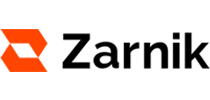


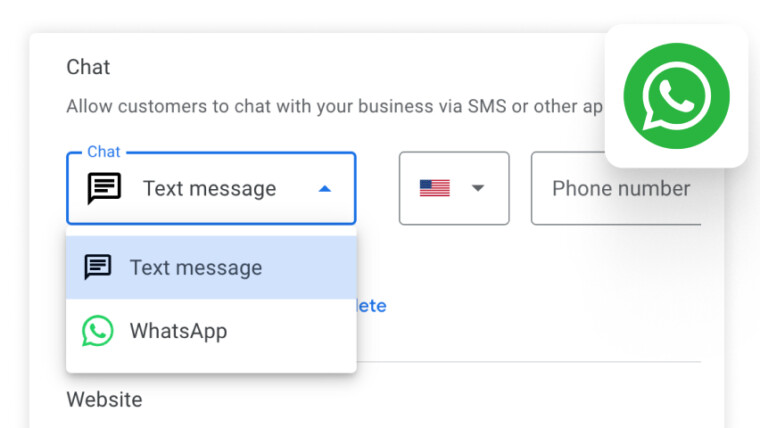

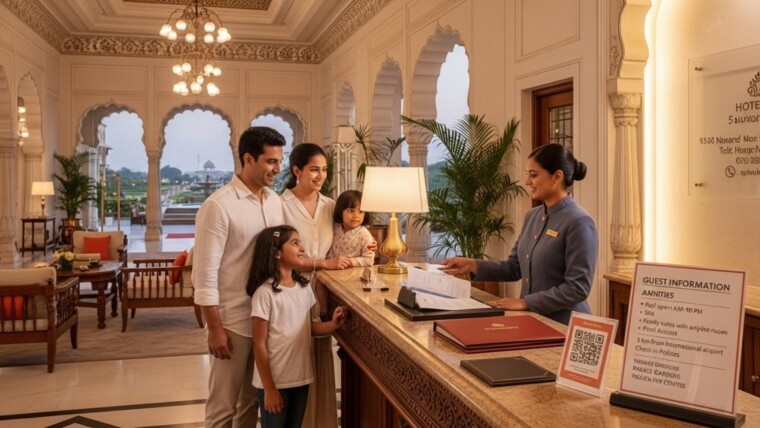
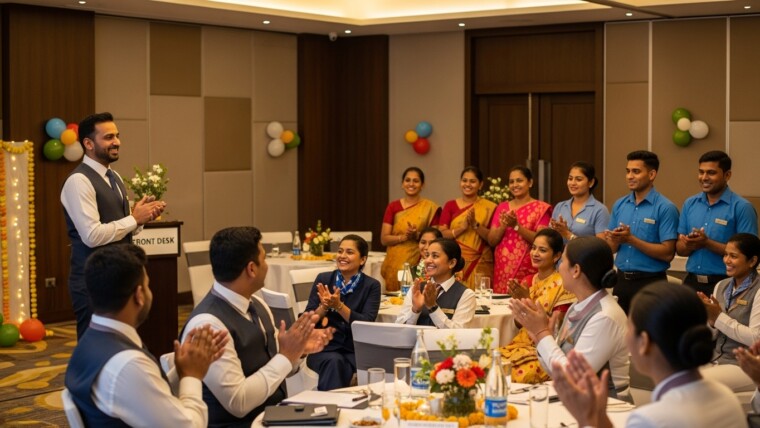
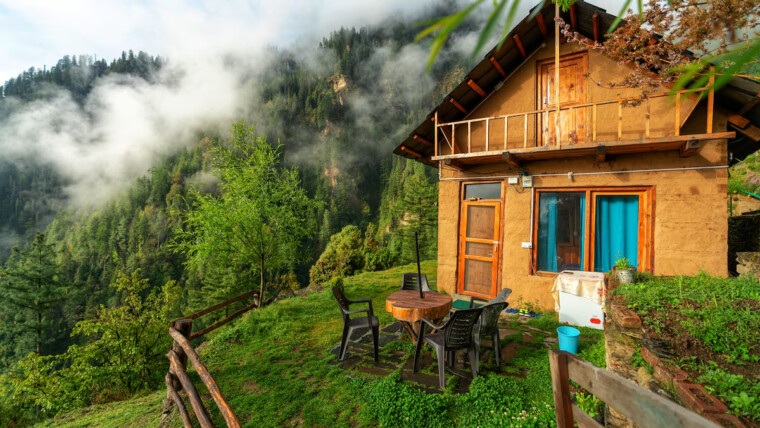
Essential Diversey Chemicals: A Guide for R1 to R9 TASKI Series
How to Respond to Guest Reviews with 10 Samples
Different Types of Paper Napkins for Restaurants
Top OTAs in India: Complete 2024 Guide for Hoteliers
Guest Reviews: The Hidden Force Behind Bookings